Prime Rate
Learn what the prime rate is in Canadian real estate, how it influences mortgage rates, and what it means for borrowers with variable-rate loans.

May 22, 2025
What is the Prime Rate?
The prime rate is the benchmark interest rate set by major Canadian banks, used as the basis for determining variable interest rates on loans and lines of credit.
Why the Prime Rate Matters in Real Estate
In Canadian real estate, the prime rate directly affects borrowing costs for variable rate mortgages, Home Equity Lines of Credit (HELOCs), and personal loans. It is influenced by the Bank of Canada’s overnight lending rate and typically adjusts several times a year in response to monetary policy.
Key features of the prime rate:- Published by major financial institutions (e.g., RBC, TD)
- Used to price variable loans (e.g., Prime - 0.5%)
- Responds to economic conditions like inflation or growth
Borrowers with variable-rate mortgages or floating-rate HELOCs will see their interest rates fluctuate as the prime rate changes. Conversely, fixed-rate mortgages are not directly tied to the prime rate but may still be influenced by related bond yields.
Understanding the prime rate helps buyers assess interest risk, choose between fixed or variable products, and anticipate changes in monthly payments over time.
Example of the Prime Rate in Action
A borrower with a variable-rate mortgage at Prime - 0.75% sees their rate increase from 4.70% to 5.20% after the prime rate rises by 0.5%.
Key Takeaways
- Base rate for variable loans in Canada.
- Adjusted by banks based on Bank of Canada policy.
- Affects mortgages, HELOCs, and credit lines.
- Impacts affordability and payment amounts.
- Important for borrowers with variable products.
Related Terms
- Variable Rate Mortgage
- Bank of Canada Rate
- HELOC
- Interest Rate
- Mortgage Term


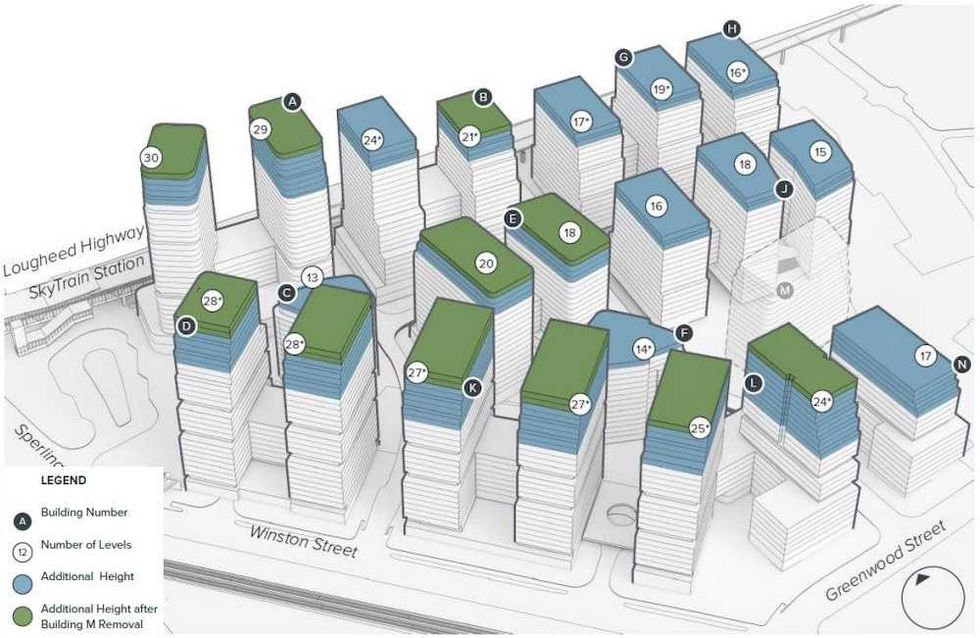 Building height changes from the previous master plan apllcation. (Peterson)
Building height changes from the previous master plan apllcation. (Peterson)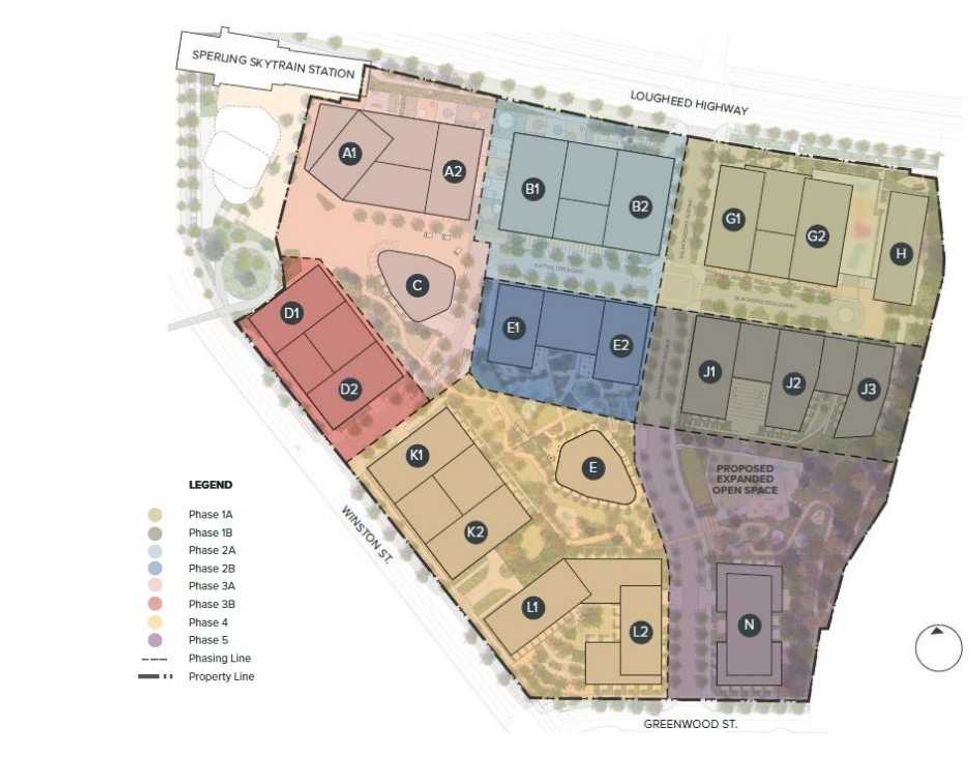 An overview of Blake Village and the phasing plan. (Peterson)
An overview of Blake Village and the phasing plan. (Peterson)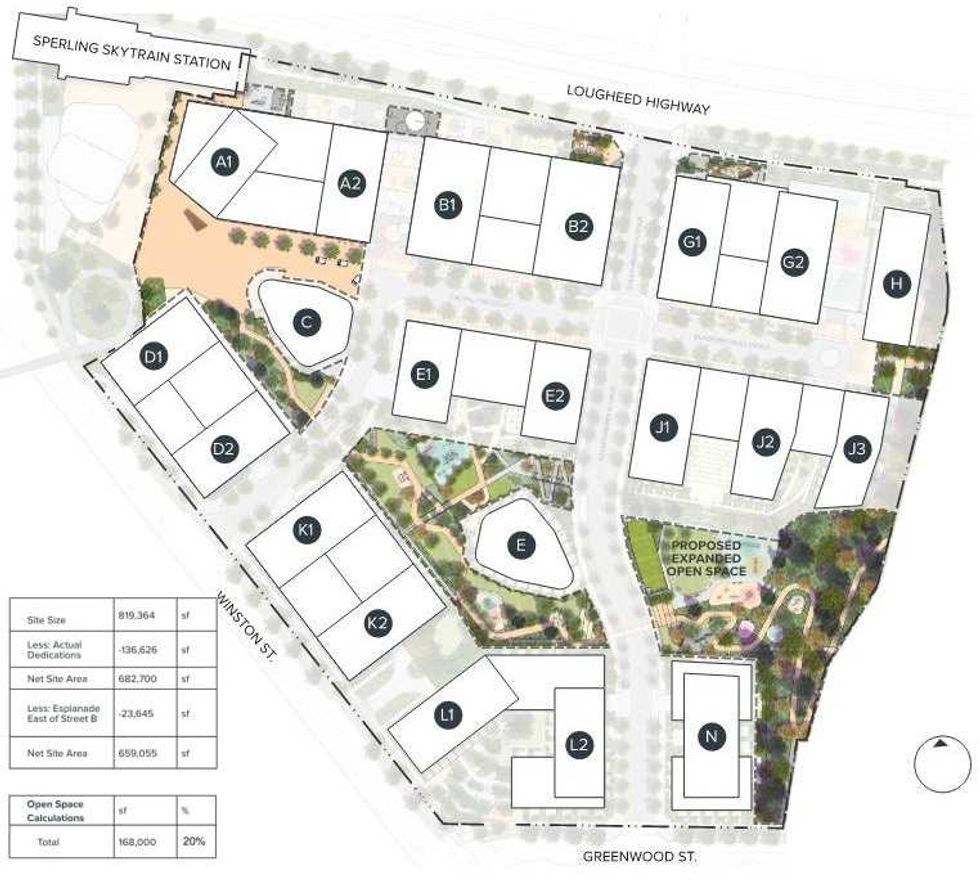 An overview of Blake Village and planned open space. (Peterson)
An overview of Blake Village and planned open space. (Peterson)

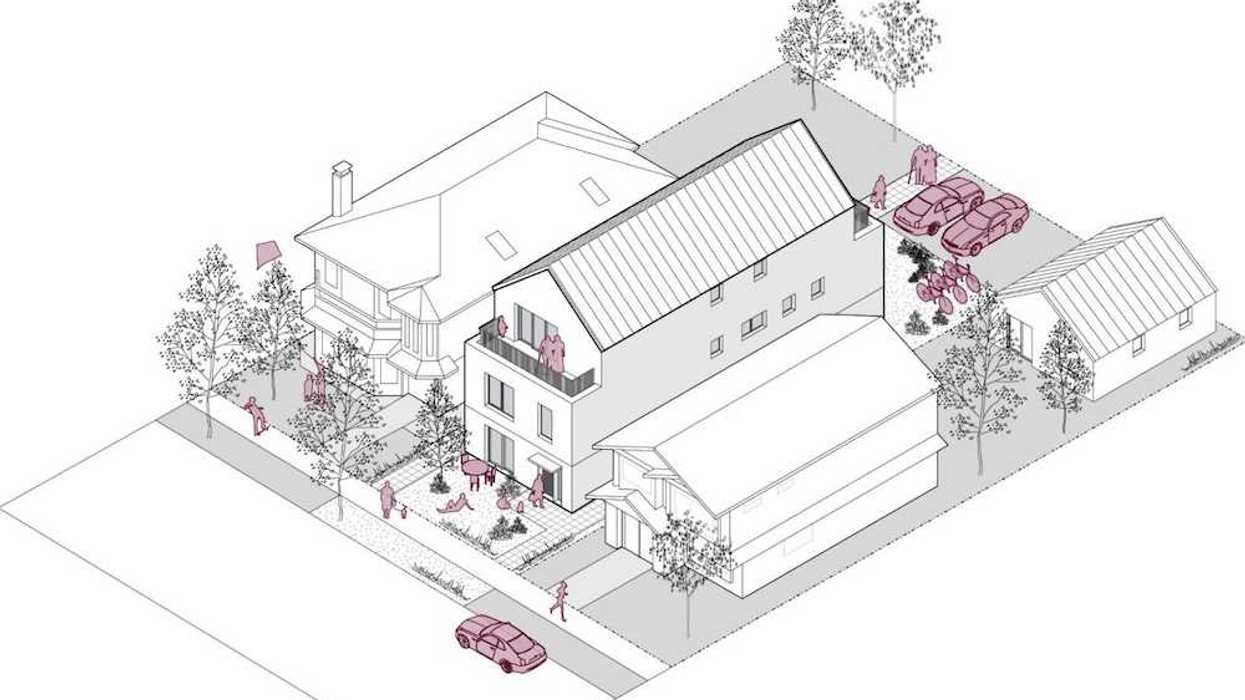


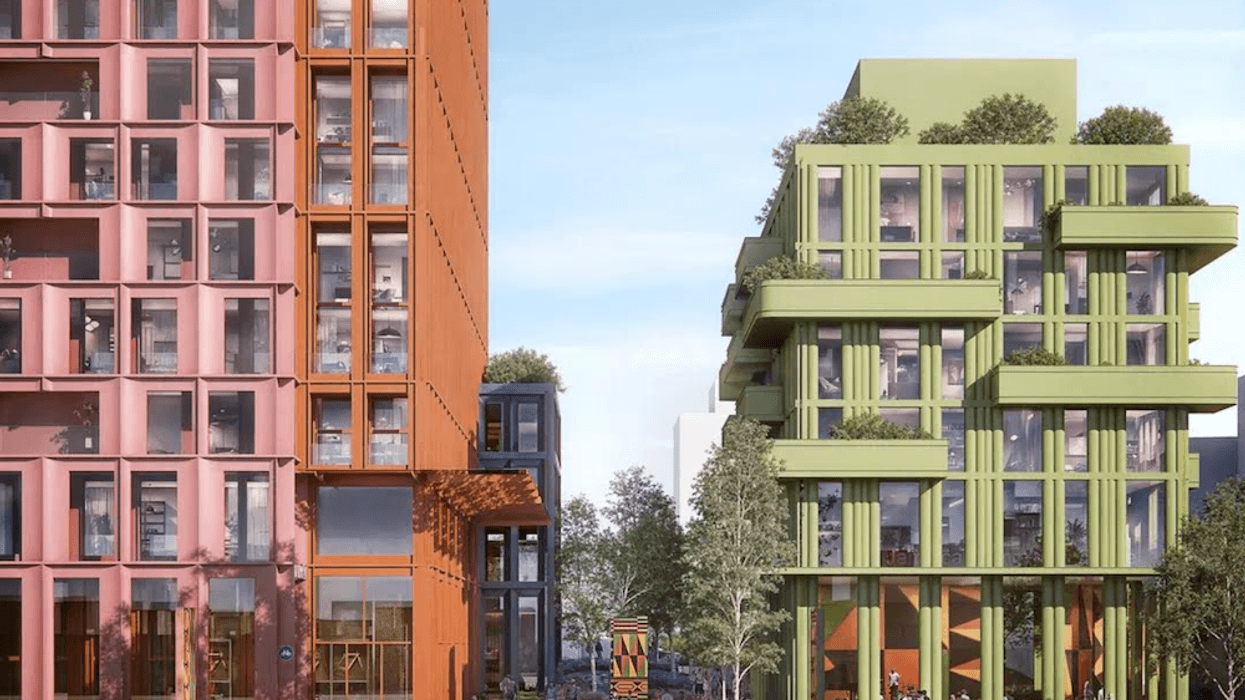




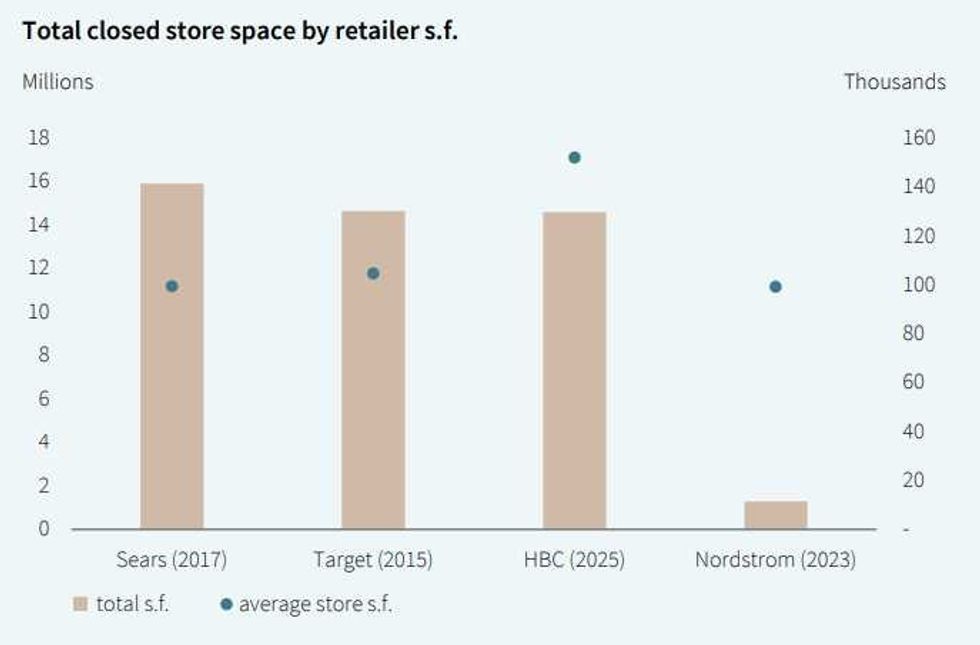 Hudson’s Bay vacated about as much space as Target did in 2015. (JLL)
Hudson’s Bay vacated about as much space as Target did in 2015. (JLL)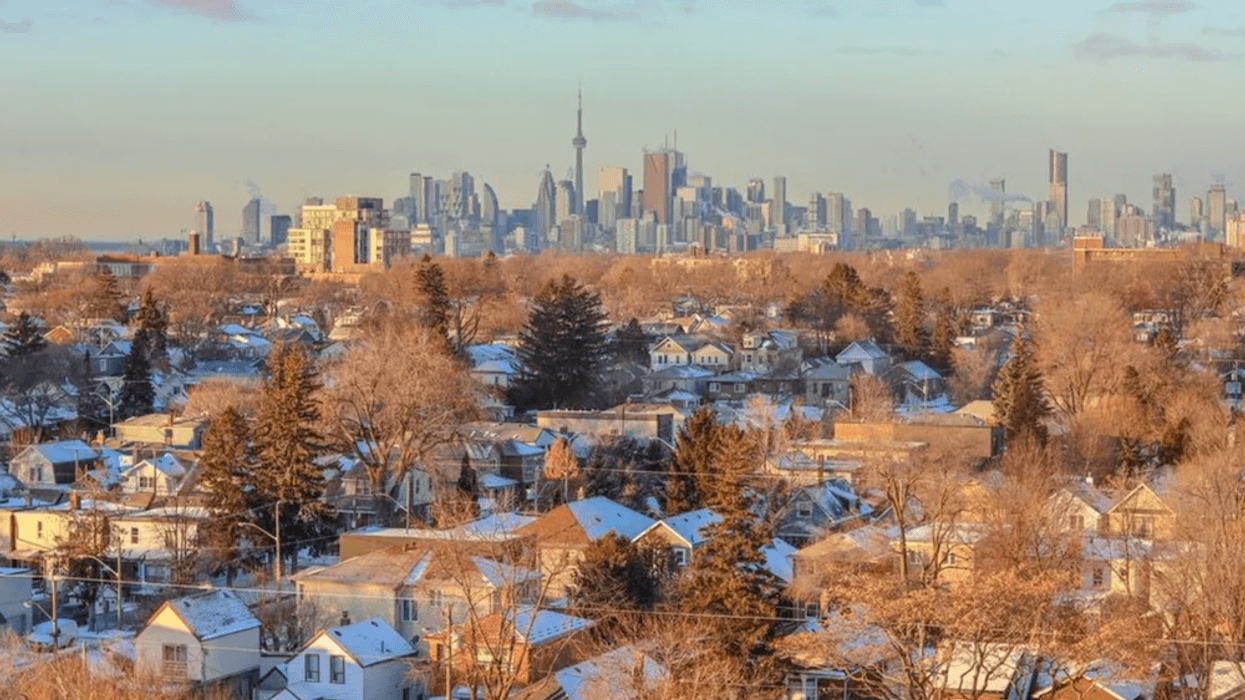

 A rendering of Frame in East Vancouver. (Peterson)
A rendering of Frame in East Vancouver. (Peterson) The Tesla facility set for 908 Raymur Avenue in Vancouver. (Beedie)
The Tesla facility set for 908 Raymur Avenue in Vancouver. (Beedie) Phase One of Sen̓áḵw in Summer 2025. (OPTrust, Nch’ḵay̓)
Phase One of Sen̓áḵw in Summer 2025. (OPTrust, Nch’ḵay̓) (QuadReal Property Group, Westbank)
(QuadReal Property Group, Westbank) The two-tower Cascades project under construction in mid-2025. (Ledcor)
The two-tower Cascades project under construction in mid-2025. (Ledcor) A rendering of Perla near Central Park. (Polygon Homes)
A rendering of Perla near Central Park. (Polygon Homes) Phase One of Concord Metrotown is located at the corner of Kingsway and Nelson Avenue in Burnaby. (Concord Pacific)
Phase One of Concord Metrotown is located at the corner of Kingsway and Nelson Avenue in Burnaby. (Concord Pacific) Myriad will complete Concert Properties’ Heart of Burquitlam community. (Concert Properties)
Myriad will complete Concert Properties’ Heart of Burquitlam community. (Concert Properties) SOCO 2 (left) in Coquitlam. (Drew Powell, LinkedIn)
SOCO 2 (left) in Coquitlam. (Drew Powell, LinkedIn) King George Hub in Surrey. (Submitted by PCI Developments)
King George Hub in Surrey. (Submitted by PCI Developments)